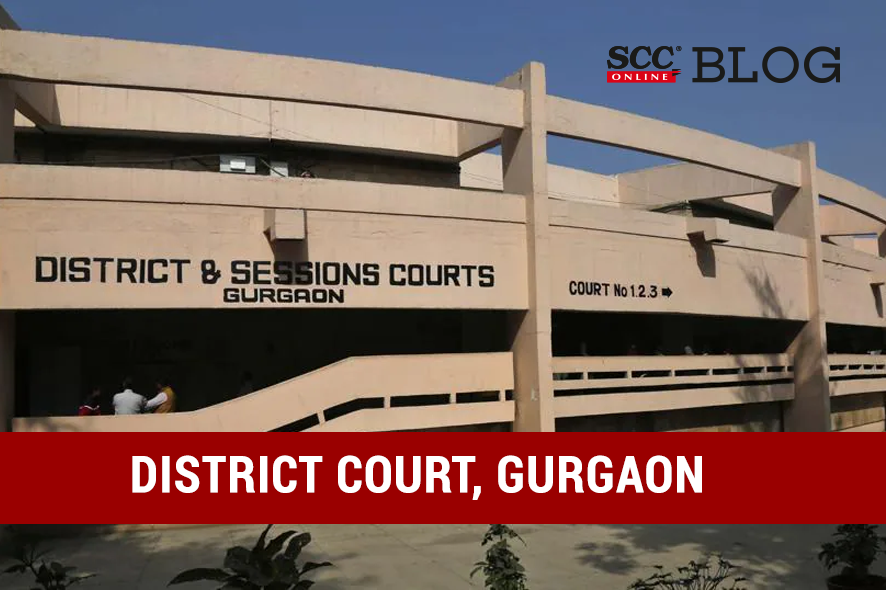District Court, Gurgaon: In a suit seeking execution of sale deed of the suit property, which was allegedly sold through oral agreement in 1992, the Civil Judge Junior Division Vikrant, J. dismissed the same with costs holding it to be an apparent case of forgery. The Court also pointed out the settled law which requires transfer of immovable property of value Rs. 100/- and above by a duly registered written instrument.
The plaintiff claims that the suit property was bought from defendants through an oral agreement for a consideration of Rs. 6.5 lakhs in 1992. No receipt or written agreement was prepared despite making complete payment in cash. The plaintiff was put in possession of the land and the original title deed was also handed over by the defendants. It was agreed that the sale deed would be executed and registered at the will of plaintiff. The plaintiff raised construction over the land, but nothing was done in furtherance of the execution and registration of the sale deed.
In 2011, the plaintiff asked the defendant to execute a sale deed, however, defendants started demanding more money. Thus, X was constrained to pay an additional sum of Rs. 2,20,000 to the defendants on 21-01-2011 after which, one of the defendants executed receipt of Rs. 1.50 Lakhs and another issued receipt of Rs. 70,000 cash. However, the defendants did not come forward for the execution of sale deed. Thus, the present suit was filed by X who is dead and being represented through the legal heirs seeking execution of the sale deed of suit property in his favour.
The defendants, on the other hand, denied the oral agreement and came up with another story alleging that the property documents were kept fraudulently, and that the plaintiff got his signature on some blank papers by misusing the same for fabricating receipts.
The Court framed the following issues for deciding the present matter:
1. Whether agreement to sell the suit property was executed by defendant in favor of the plaintiff in June 1992?
The Court considered the law that a decree for specific performance cannot be granted based on an oral agreement unless there is cogent evidence to prove such agreement. In addition, the sale of an immovable property of value above Rs. 100 cannot take place without a written document registered under the Registration Act, 1908. The Court pointed out that the onus to prove this is issue lies with the plaintiff. The Court observed that there is no independent witness to prove the agreement and the testimony of plaintiff’s son hints towards the oral agreement being false and vague in the absence of any evidence to prove the payment of Rs 6.5 lakhs.
The Court commented that “It is visible to the naked eyes that the two receipts were not prepared at the time when thumb impression of the two defendants were obtained. The ink used for filling the blank spaces is different from the ink with which names of the defendants are mentioned. It is an apparent case of forgery by filling up blank spaces after obtaining thumb mark of defendants on a printed format without material recitals.”
The Court discussed various legal provisions including Sections 9 and 53-A of the Transfer of the Property Act, 1882. The Court held that the evidence available on record is insufficient to prove the oral agreement, and that the Court should not even allow leading evidence to prove oral agreement of sale of immovable property, since a claim based on oral agreement is outrightly unacceptable.
2. Whether the plaintiff is entitled to decree of specific performance of the oral agreement to sell?
The Court explained that the onus to prove lied with the plaintiff against whom, Issue No. 1 was decided. Consequently, the question of proving readiness and willingness does not arise since the oral agreement remains unproved. Thus, issue no. 2 was also decided against the plaintiff.
3. Whether the plaintiff suppressed material facts and filed this suit on false pleading?
The Court pointed out that the present suit was rooted upon documents forged and fabricated by the plaintiff and decided the third issue against the plaintiff.
4. Is the present suit barred by limitation?
The Court noted that the present suit was filed in 2014 for an agreement which was allegedly made in 1992, thus, ‘hopelessly barred by limitation’.
The Court therefore dismissed the plaintiff’s suit with cost.
[Dr. Dharambir Yadav v. Rambir, 2023 SCC OnLine Dis Crt (Haryana) 3, decided on 22-02-2023]
Judgment by: Civil Judge Junior Division Vikrant
Advocates who appeared in this case :
For Plaintiff: Advocate Saurabh Kaushik;
For Defendant: Advocate R.K. Yadav.



